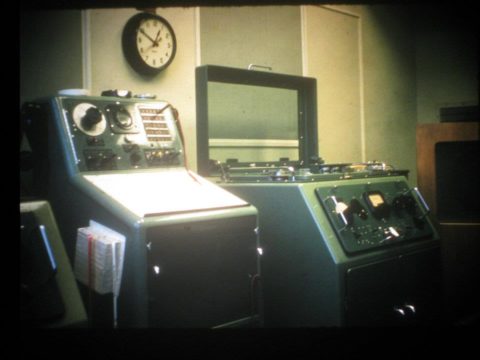(Below is part 7 of Colin Pierpoint’s blog about his career at the BBC. This part concerns the Control Room at BBC Birmingham in Broad Street in the early/mid 1960s).
“In the Control Room I really enjoyed being part of the network. It was called the SB System (for Simultaneous Broadcast). Distribution lines to the transmitting stations and Contribution lines from other regions passed through Birmingham Control Room. When I first arrived this was for Home Service, the Light Programme, and the Third Programme. Adjoining the Control Room at Broad Street was the Continuity Suite for the Midland Home Service. Because the Third Programme only began broadcasting in the evening, the lines were used for telephone calls during the day. Some time later, the Music Programme began in daytime on this network, and that changed its name when all Radio networks were revised into Radios 1, 2, 3 and 4.
Television sound also came through the Control Room, the vision being switched in the Switching Centre one floor below. (Only the BBC could do it this way). But in addition to the distribution of the networks, the Control Room switched contributions from the Regions and London. In fact all sound for Radio and Television went this way, with each individual booking for every contribution given on the daily booking sheet called the “SB Chart”. Sound for Radio and Television outside broadcasts from the Midlands were routed into here on lines from the Post Office. Saturday was particularly busy because there was Sport in the Midlands on the Midland Home Service (later Radio 4 Midlands) and contributions from many football grounds were switched from one region to another. This was all done on plugs and cords; there was no switching system for OB contributions. (There was a small relay switching panel for the SB lines). When the programme Nationwide started on television it required quite a complicated lot of plugging in the control room.
We found that if we plugged two amplifiers to a spare Post Office circuit, we could hear the feed to the betting shop just up Broad Street. Ron Cartwright used to regularly dash out of the Control Room to put a bet on! He also did a trade in selling strawberries from Evesham (where he lived). One morning when I was again late for the 6-30 am shift, I apologised to Ron in the street, saying there was just time for me to get upstairs in time for the Midlands weather forecast (the first opt out at 6-57). He said never mind that, take these upstairs while you are going, and gave me four trays of punnets of strawberries from his car boot!”
Colin Pierpoint




